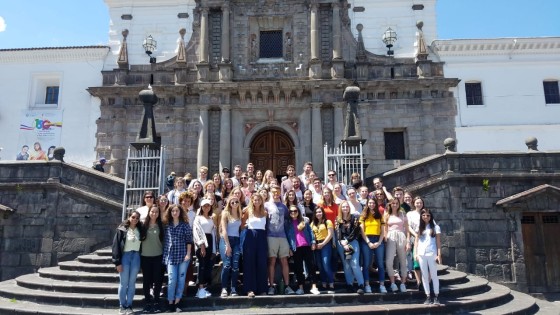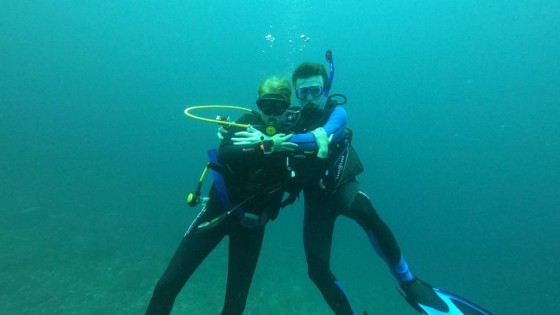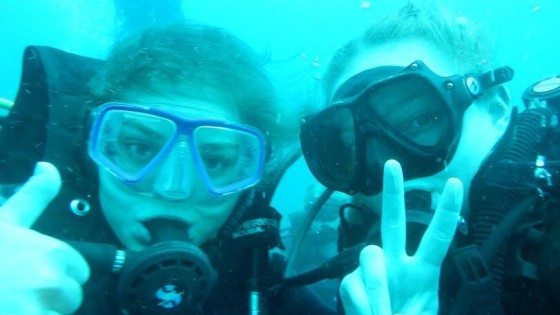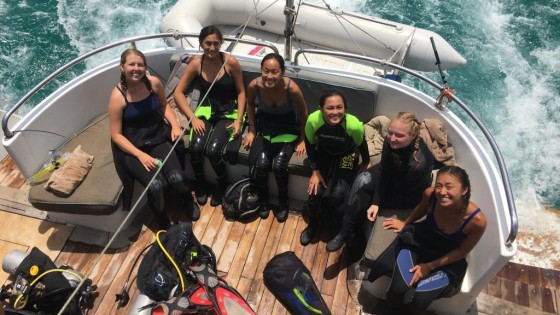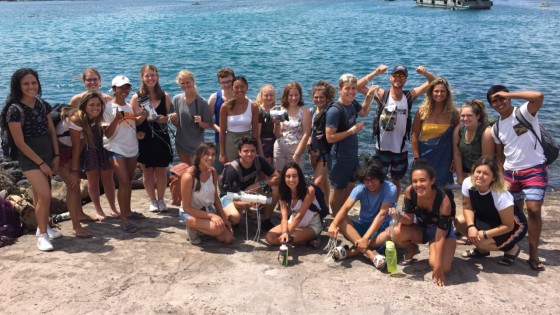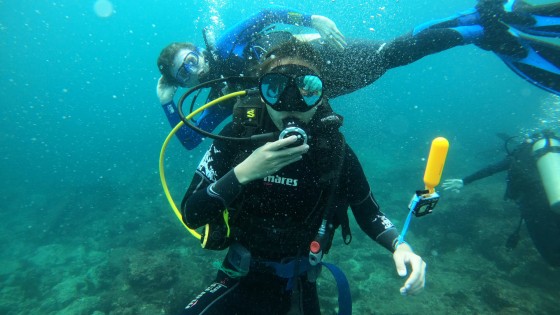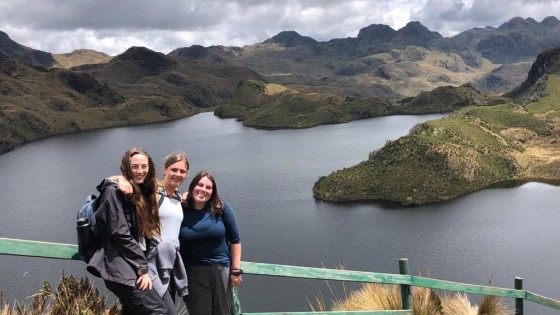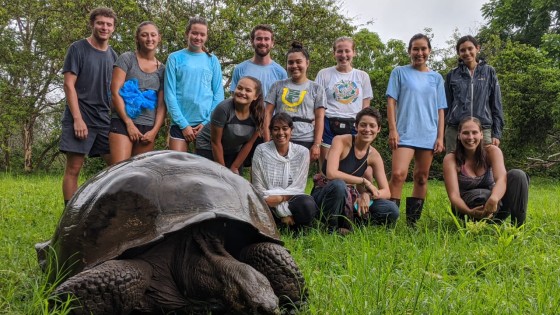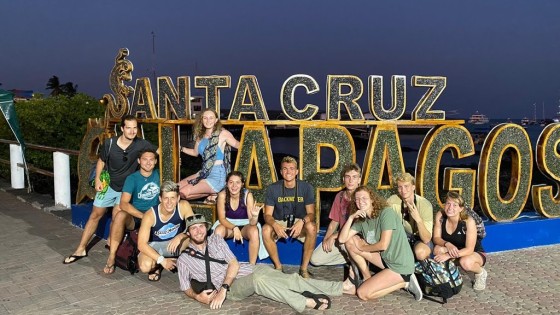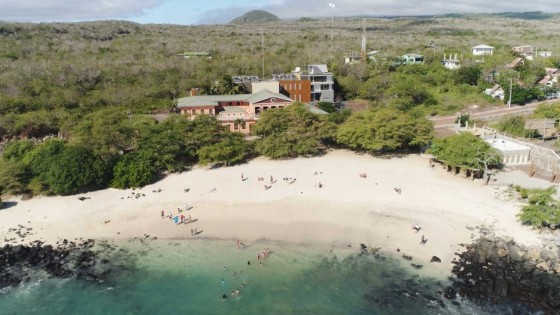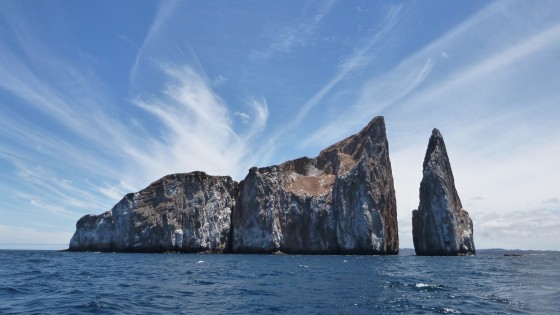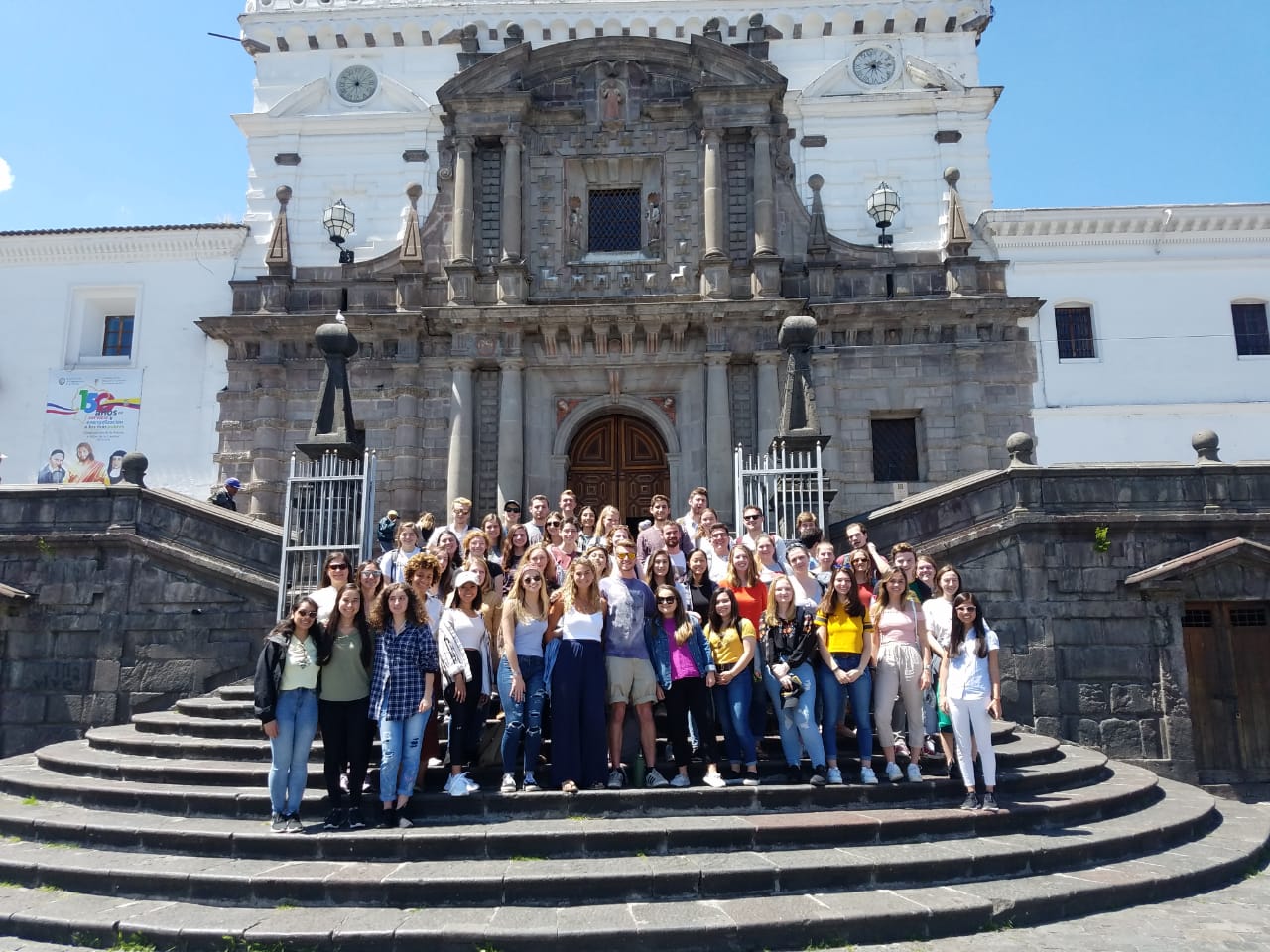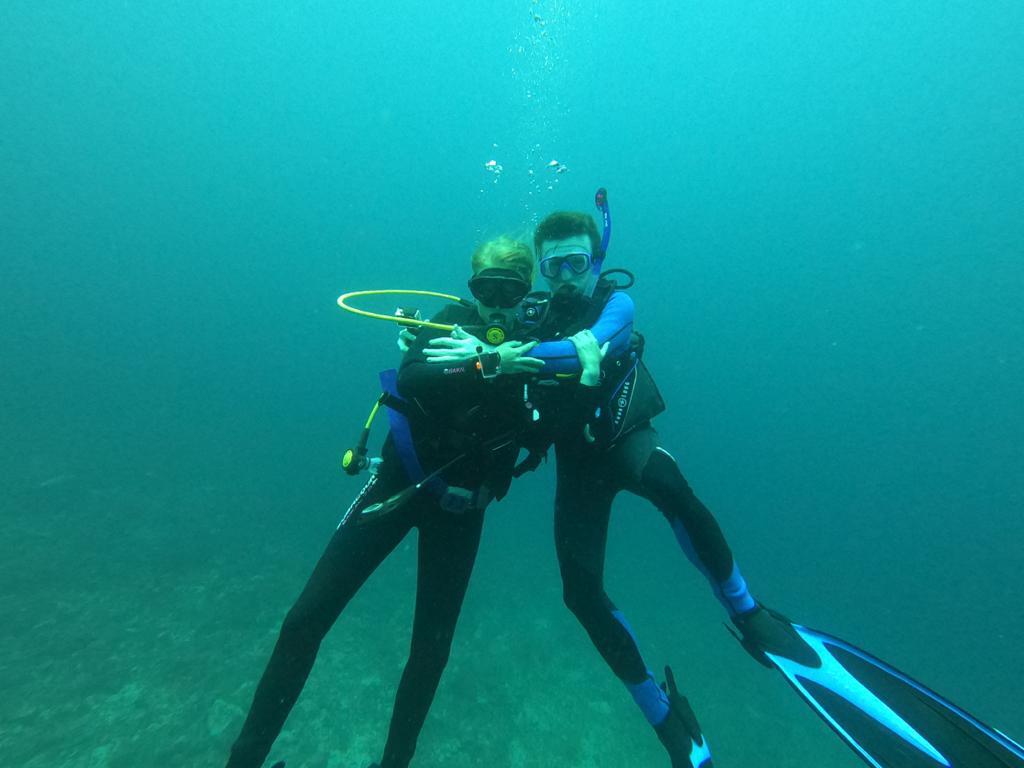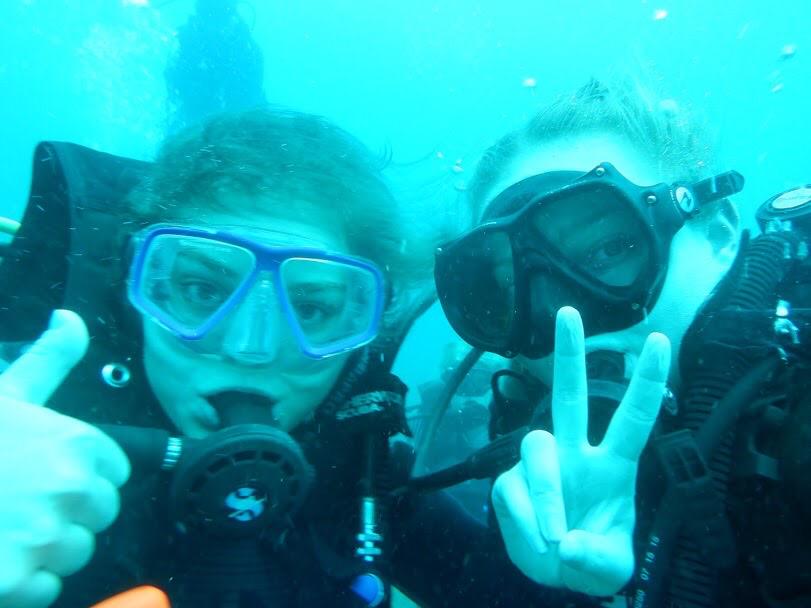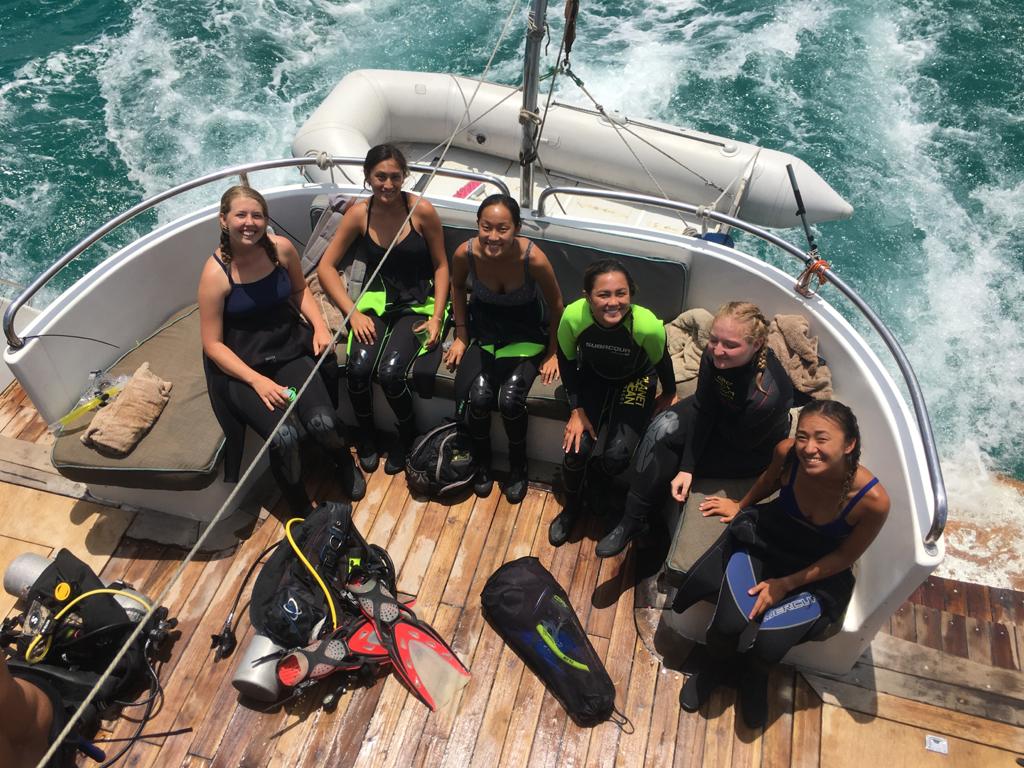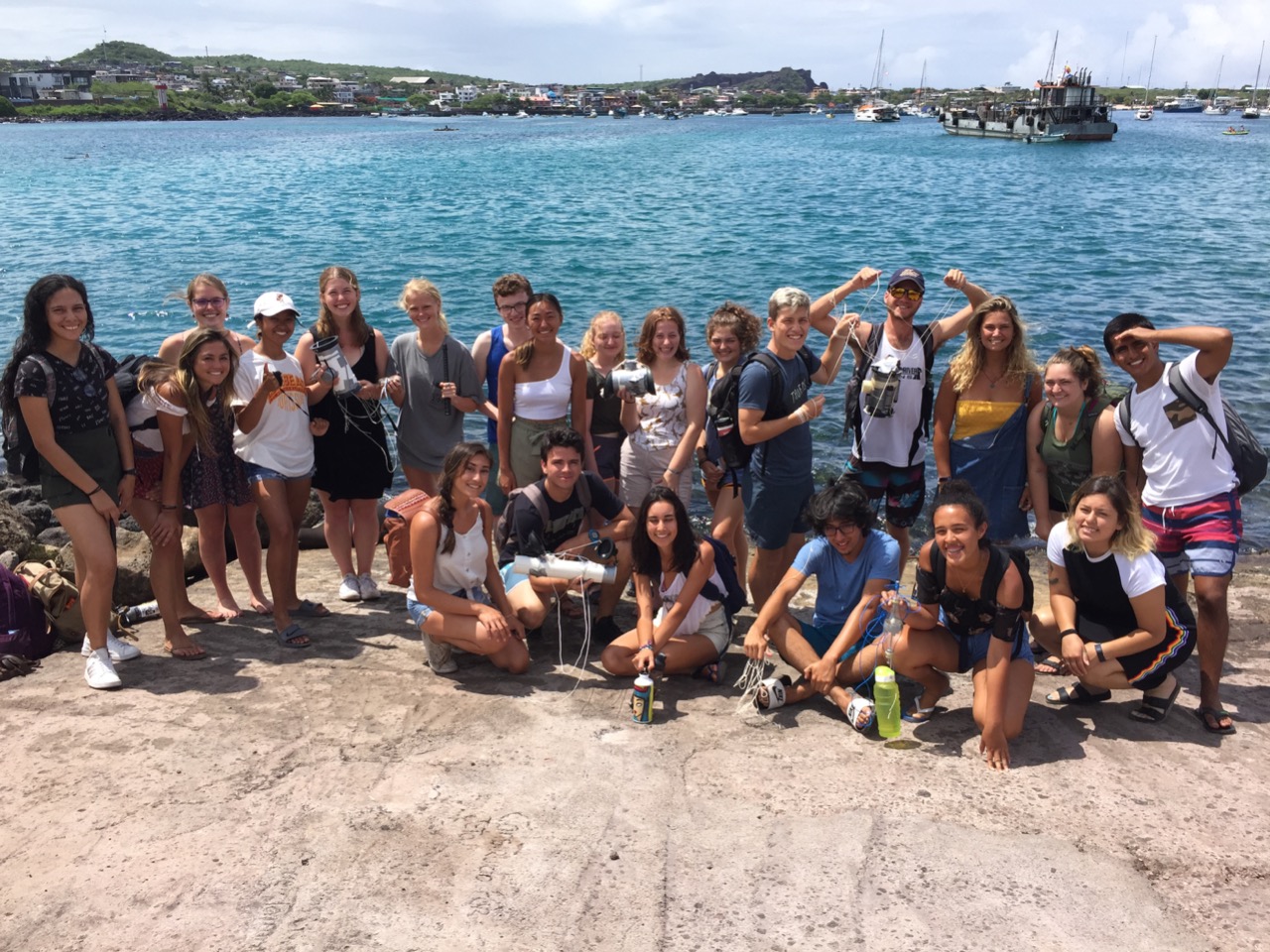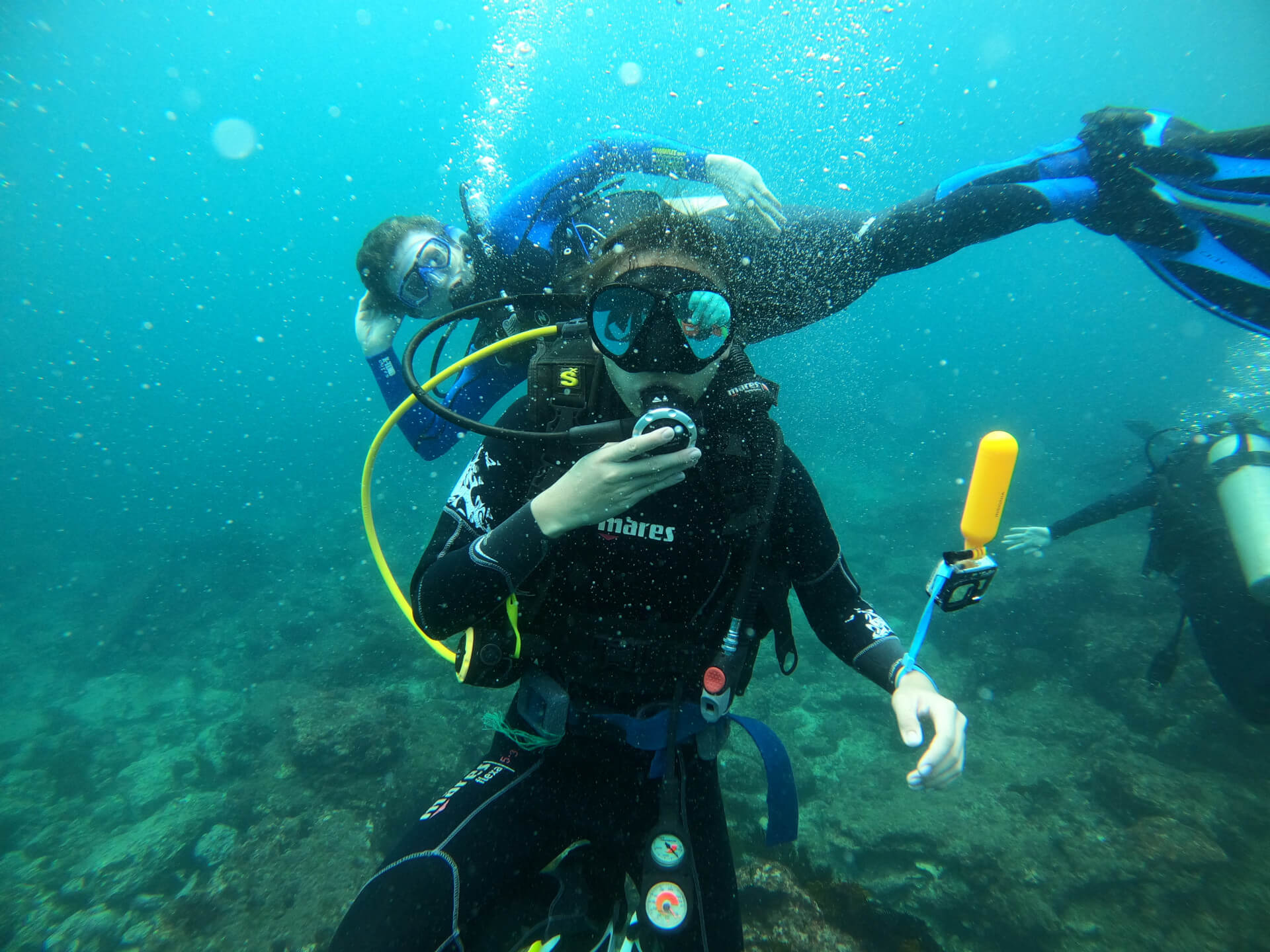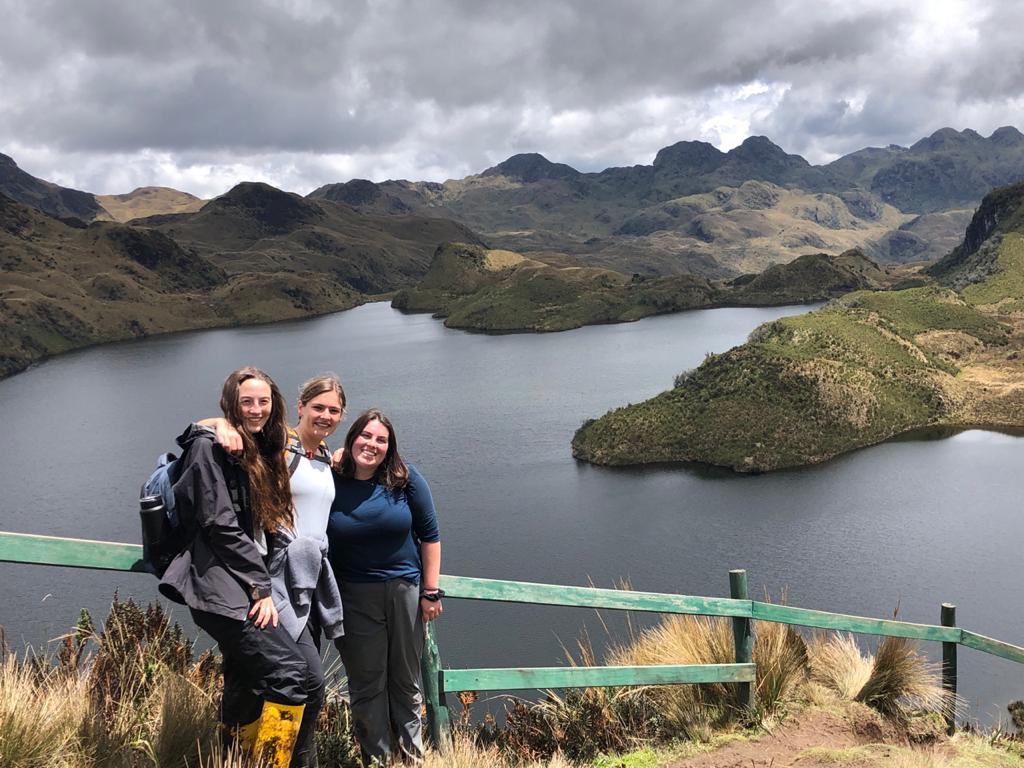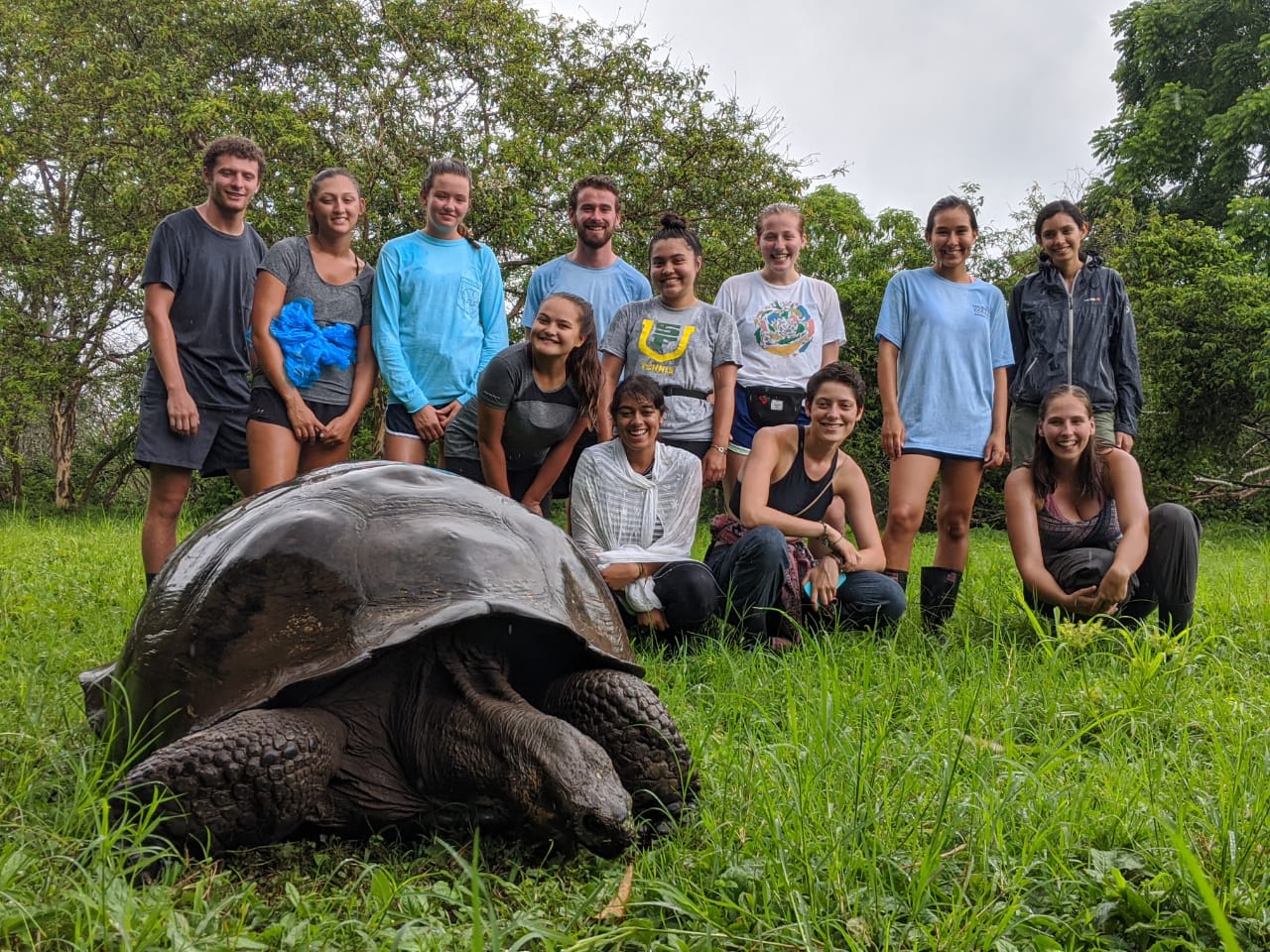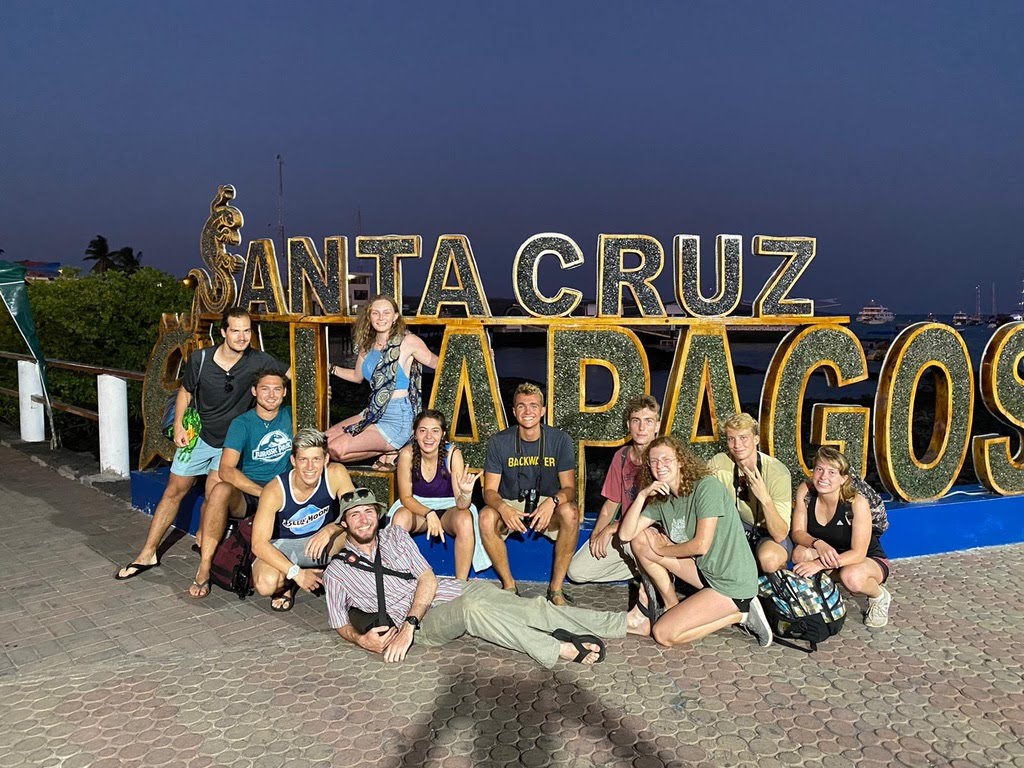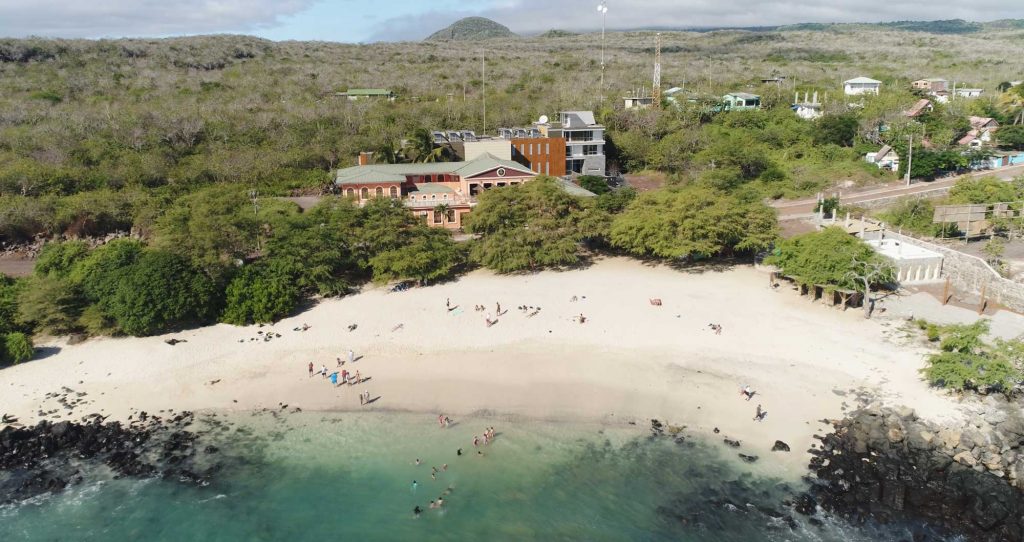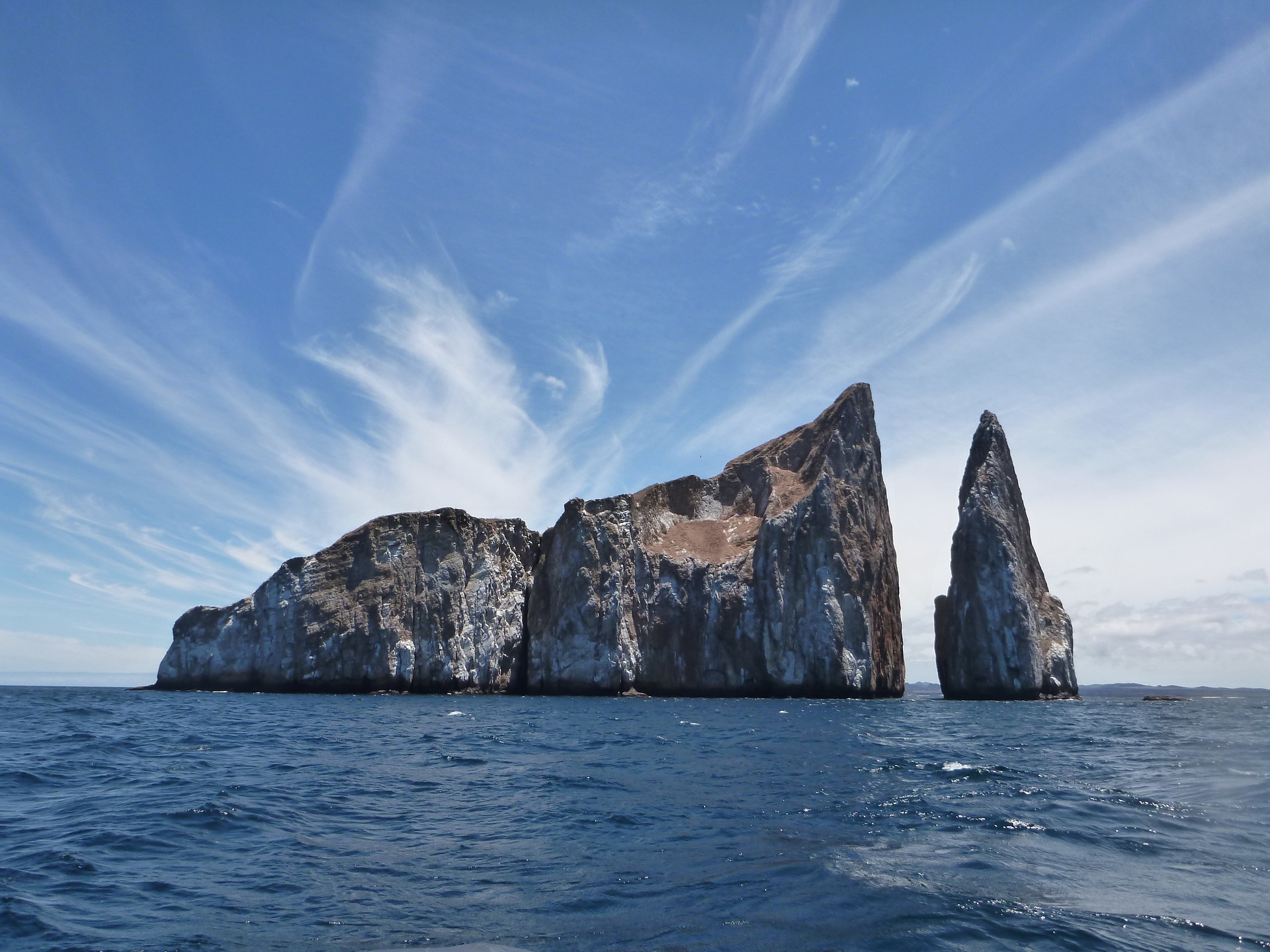Galapagos Semester Program GAIAS
Located on San Cristóbal Island, the USFQ Galápagos campus offers international students the opportunity to study in one of the most pristine natural laboratories in the world.
The Galápagos Semester Program offers four academic courses in biological and social sciences, all taught in English. Students can choose one of the following concentrations:
- Evolution, Ecology, and Conservation.
- Marine Ecology.
- Sustainability and Resilience.
- One Health.
GAIAS Program Presentation (English)
Galápagos Semester Program Dates:
- First semester: August-December.
- Second semester: January-May.
Application
Requirements for Application
Students must meet the following:
- Minimum of starting the second year of university studies
- Minimum GPA of 3.0.
- Proficiency in English (international applicants for whom English is a second language must provide documentation of English proficiency).
- Students in the Evolution, Ecology, and Conservation, and Sustainability and Resilience tracks must have taken at least one (1) biology or ecology course at the university level and must have passed the course with a minimum grade of B-.
- One Health track students must have taken at least two (2) biology and/or ecology courses, one (1) laboratory course at the university level, and must have passed those courses with a minimum grade of B-. Applicants may propose equivalent courses for the mentioned courses.
- Marine track students must have taken at least two (2) biology and ecology courses at the university level and must have passed those courses with a minimum grade of B-.
- Marine track students must obtain open water diving certification and DAN diving insurance before the start of the program for USFQ-sponsored academic dives. Students without open water certification or diving insurance will only be allowed to snorkel during excursions.
- Students must have the yellow fever vaccine regardless of the track they choose.
If you have any questions, please contact: opi@usfq.edu.ec
Course Options
Each academic concentration consists of 5 intensive 3-credit courses delivered in 3-week modules. The first and second modules are held at the main USFQ campus in the Cumbayá Valley, located on the outskirts of Quito. The remaining three modules take place on San Cristóbal Island, Galápagos.
SCHEDULES
Monday through Friday 9:00AM to 12:00PM*
| Mainland | Galápagos | |||||
|---|---|---|---|---|---|---|
| Module 0 | Module 1 | Module 2 | Module 3 | Break | Module 4 | Module 5 |
| 1 week | 3 weeks | 3 weeks | 3 weeks | 1 week | 3 weeks | 3 weeks |
| Spanish Communication Skills 2:00 - 5:00PM | Evolution, Ecology and Conservation Track | |||||
| Geographical Info System | Tropical Ecology | Origin of Species & Island Biodiversity | Break | Field Ecology | Native & Intro Plants | |
| Marine Ecology Track | ||||||
| Freshwater Ecology | Techniques of Marine Research 1 | Marine Ecology | Break | Marine Ecosystem Based M. | Techniques of Marine Research 2 | |
| Sustainability and Resilience Track | ||||||
| Evolution of Business Sustainability | Water Resilience | Island Sustainability | Break | Climate Nexus: Water-Energy-Food in the Galapagos | Human development and resilence | |
| One Health Track | ||||||
| Foundations of Global Health | Comparative Health Systems | Ecology of Infection Diseases | Break | Animal Diseases and Monitoring | Environmental Microbiology and Lab | |
*Subject to change
Accommodation
Students are housed with carefully screened host families in Cumbayá (Quito) for the first and last module, and with host families on San Cristóbal Island for the remainder of the semester. Students stay in hotels during excursions lasting more than one day.
For more information about the host family experience, please watch this video.
Excursions
Depending on the program track, students will visit the Ecuadorian highlands and/or the cloud forest. Additionally, students in the Evolution, Ecology, and Conservation and Marine Ecology tracks will visit the USFQ Tiputini Biodiversity Station in the Amazon during the initial modules. In the Galápagos Islands, students will experience hands-on classes where they will visit some of the most amazing places within the islands as part of their academic work.
Based on location, hikes may be:
- Moderate (most hikes in the Galápagos Semester Program)
A moderate hike is generally suitable for novice hikers who want some challenge. The terrain will have a moderate slope and may have some steeper sections. Typically, 3 to 5 miles. - Moderately strenuous: Moderately strenuous hikes will generally be a challenge for an unfit person. The terrain will involve a steady and often steep slope. Typically, 5 to 8 miles. These hikes are expected at the Tiputini Biodiversity Station, where students will hike daily during their stay.
- Strenuous: Strenuous hikes will challenge most hikers. The hike will generally be longer and steeper but may be considered "Strenuous" due to elevation gain. Typically, 5 to 8 miles at an elevation gain of 10 feet above sea level. This may be expected only in the Tropical Ecology class and Wildlife Conservation Biology class.
Cost
The program tuition cost depends on how students come to study at USFQ and their home institution's relationship with USFQ. Tuition payment is additional for non-exchange students (we suggest checking with your home institution if you are unsure of your status).
The concentration program cost must be paid by all students and includes orientation and Quito tour, academic excursions, accommodation and meals, Ecuadorian SIM card, and round-trip airfare between Quito and Galápagos.
For information on updated costs, please contact our Office of International Programs: opi@usfq.edu.ec
Photo Gallery
